Making the Most from your Triathlon Training Camp
 Karen Parnell
March 21, 2022
Karen Parnell
March 21, 2022
Getting the Most from your Triathlon Training Camp
The idea of going to a warm country for some dedicated triathlon training is a dream of many especially after the last couple of years!
Training camps should be a blend of fun, experiencing new places and spending focussed time on quality training without the worries of work. You can get in some good quality sessions to help you train for your ‘A race’. Having different coaches on your camp will help you practice skills you have not worked on for years or help you target areas you know you need to improve. You can also use the time to try new things like Yoga, Pilates and even Aqua Fitness classes!
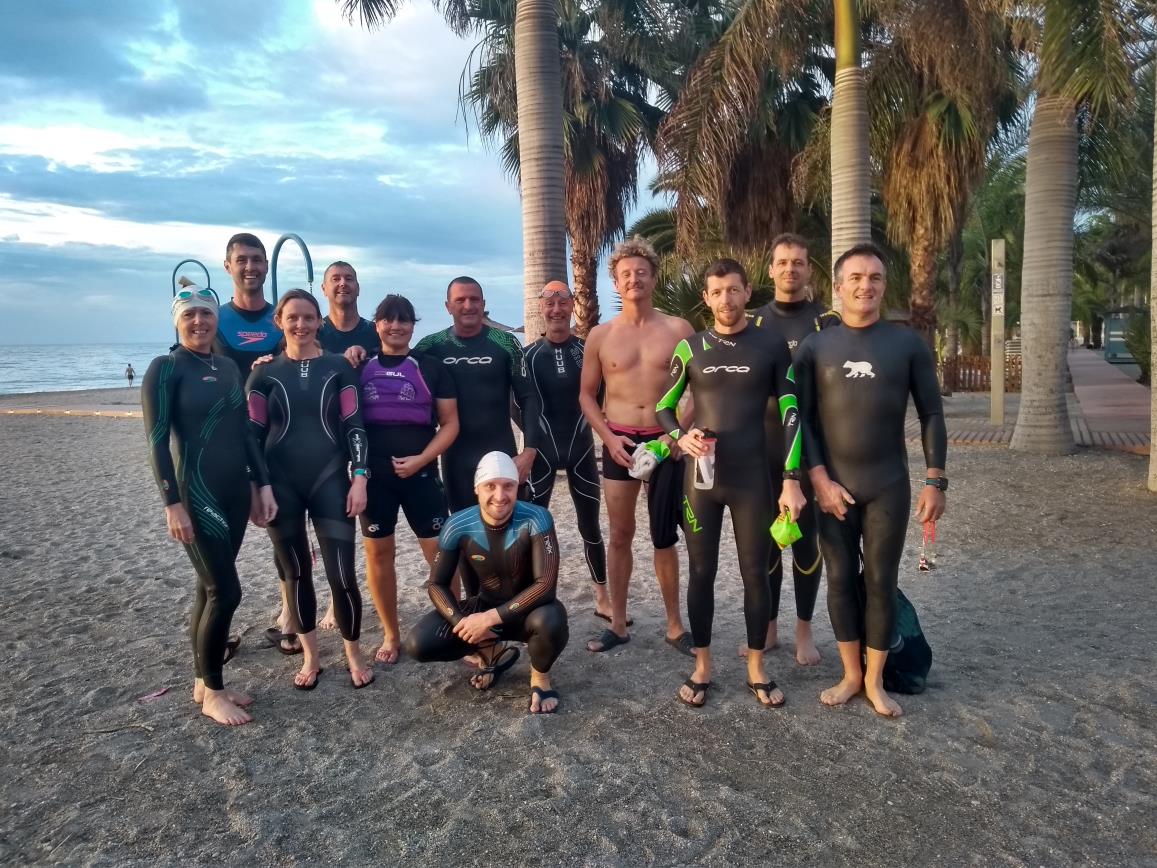
ChiliTri Triathlon & Swimming Camp in the Costa del Sol, Spain
Get your FREE Open Water Swimming Sessions E-Book
Know your objective for the Camp
Before you travel do your research on the camp and see how it is run. Check out Trip Advisor review, customer testimonials and Social Media for athlete comments and feedback. Some camps are small and focussed pretty laid back with a focus on technique rather than endurance and some are run with a timetable to cater for larger groups and can be quite rigid. Your camp should mesh well into your current training plan and you should decide on a few key objectives or goals. These objectives could be to get over your fear of sea swimming, work on your cycling ascending and descending skills, improve your running form or to get a full professional swim analysis. Request a full daily itinerary and decide whether it will fulfil your needs and expectations. Find reviews and testimonials of past camps to see what others say about the coaching and facilities.
What Kit to Pack for a Training Camp
Camps should be able to help with this and give you a typically packing list for the camp and time of year. Check out the weather forecast for the week and pack accordingly. Lots of thin layers are good if you know the weather will be changeable. If you plan to pack very light and want to hire a bike, ask if they also offer helmet and pedal hire and if they will set your bike up before you arrive if you provide your measurements. Ask if there are laundry services.
If you are planning to do open water swimming, then think about packing a wetsuit and tow float or investigate hiring one when you are there.
Work with your Coach and the Training Camp Coach
If you have a coach, make them aware of your camp dates as soon as you can so they can work this into your training schedule. Try if you can to connect your coach with the camp coach or coaches so you can ensure you train well but don’t overdo it. The camp coach should be more than happy to speak to your coach to share the itinerary, distances and intensity levels.
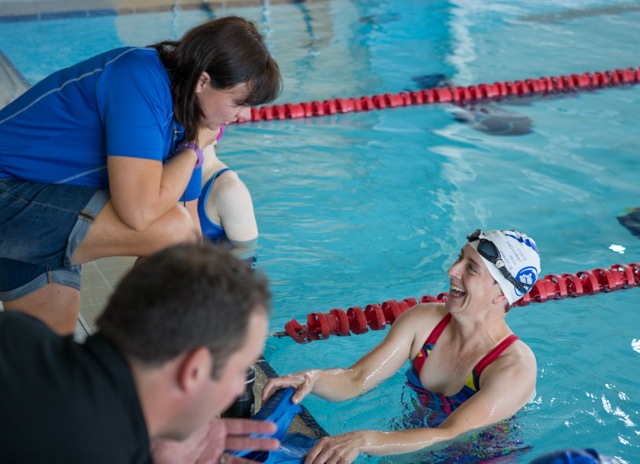
Get your FREE swimming workouts for triathletes book here.
Swim, Bike and Run Sessions
Swimming camps can be a great time to work on your technique. Getting a professional swim video analysis and tips on your body position and stroke technique is a good idea. You will be able to see which areas you need to work on, get some new drills to do and also some strength and conditioning exercises. If you are advised to do some specific drills make sure you are taught how to perform them well whilst you are there. Spend as much time as you can in the open water.
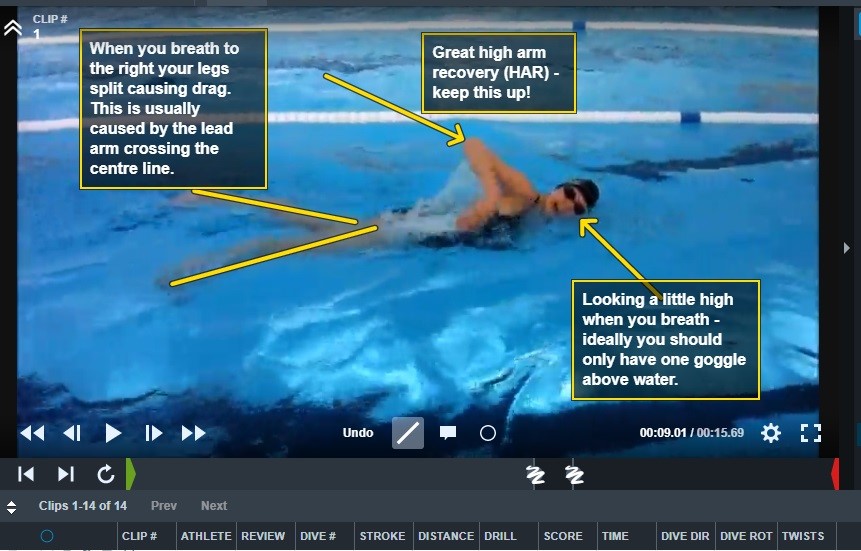
ChiliTri Swimming Video Analysis
Get your FREE Swim Workouts for Triathletes E-book
Most training camps are in locations where there is varied terrain such as flat coastal rides and mountain routes. Depending on where you live you may not be used to steep mountain routes so it's worth spending some time preparing yourself for this. Maybe add in some mountainous routes on Zwift in to your training to prepare your legs and core if you live in a flat area with no outside hills to practice on. Many triathletes find themselves on the first day hitting their first mountain hard and finding their legs trashed for the rest of the week so take care and pace yourself. Take this time to work on ascending skills like cycling out of the saddle and descending and cornering skills. Remember this is your camps so write down your objectives and try to stick to them as in large groups peer pressure can lead to longer distances and higher elevations gains than you planned for.
Get your FREE swimming workouts for triathletes book here.
As you know running out of the three disciplines where most injuries occur so again try not to get carried away. Use this time to enjoy your scenery and also work on your running drills and running strength. Most camps will offer run specific strength and conditioning, yoga or Pilates sessions so it's a good time to see what works for you. On the ChiliTri camps we offer a group exercise class called M1ND which focusses on Flexibility, Mobility and Stability which is ideal for runners. It includes single leg exercises to help with you core activation and balance, you can read about the benefits here.
Don't over stretch yourself
The goal of the camp should not be to "get the money's worth" and sign up for every session. Try not to over stretch yourself as you may return home feeling really tired and next a week or two to recover which may put your training back and impact your ability to train for your main race. Take the helicopter view and put your camp in perspective – which is more important your camp or your “A race”?
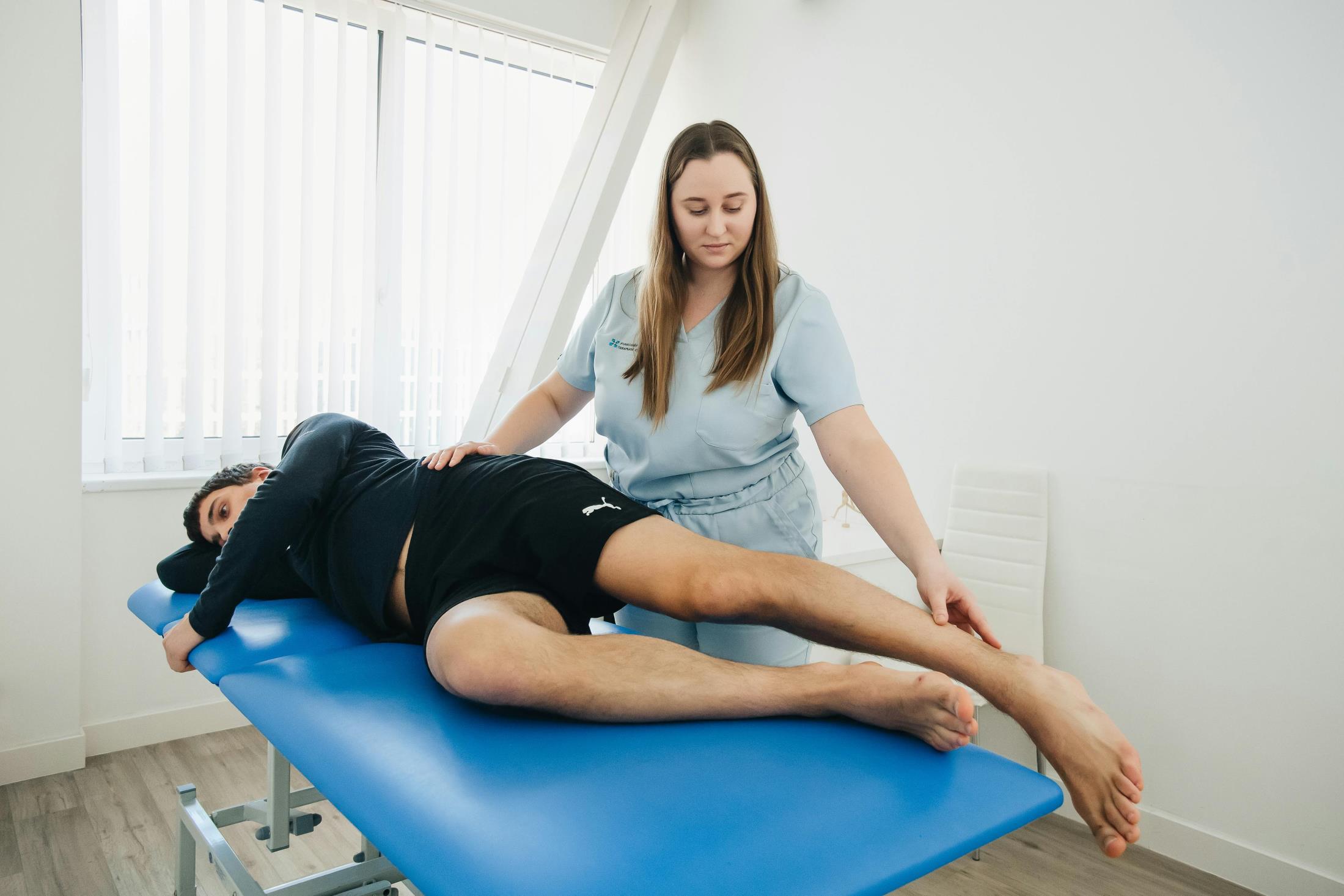
Recovery During and After Your Training Camp
It may be a good idea to have an extra rest day the week before camp because if you are fatigued when you arrive you are more likely to over train. As a rule of thumb in order to avoid over training then try not to increase your load by 40-50%. If you are used to training 10 hours a week then try not to do more than 19-20 hours of training on your training camp. The 80/20 training methodology is a good one to adopt where 80% of you training is low intensity, endurance type sessions in Z1-2 and 20% is high intensity training. Try to keep to your normal load of swim versus run versus cycling. Massage and good sleep are key to good recovery so try to get a few massages in and go to bed early and limit alcohol intake. If you know the camp area may be noisy then pack some ear plugs to ensure you get good quality sleep.
After your camp it’s worth planning a recovery week. Some camp coaches will be able to provide a recovery schedule and sessions for to enable you to recover well and in a structured way. It’s best to keep to your normal weekly routine but at a lower volume and intensity. Here are some recovery tips.

Get your FREE 23-Page Athletes Guide to Strength and Conditioning
Nutrition and Hydration
Find out in advance what’s provided on the camp and if it meets your dietary needs. Some camps provide all of the meals so ask to see the typical menu in a day. If the menu sounds boring or not good value for money, then see if you can buy or make your own meals. Some camps have cooking facilities and/or lots of good, cheap local restaurants. All camps should provide hydration and nutrition like isotonic drinks, water, fruit and energy bars. What ever they provide check out the brands and make sure they are on the list as being batch tested. If they are not, then it’s worth bringing your own isotonic drinks and bars.
Keep on top of your hydration especially in warmer climates than you are used to and try to eat some good quality protein soon after each session to ensure your muscles have the nutrients they need to repair and recover. In hotter climates keep an eye on your salt levels well as you water levels. If you get back from a long ride and your kit is covered in white salty patches, then you are probably a salty sweater so may need more electrolytes. It’s worth doing a sweat test to see what your specific needs are as everyone is different.
Get your FREE Athlete Recipe Books
Large Scale Training Camps
You may prefer a large training camp for the camaraderie and company, but these can sometimes lead you to over stretch yourself especially if you are competitive! The larger camps also tend to have mass produced food and more rigid schedules. They can also have a vast array of services like swim video analysis, massages, bike fit, Yoga and more which are not included in the price you pay so budget for this.
Bespoke Very Small Group Camps
Bespoke camps may be more up your street where the itinerary is built around you, your needs and goals. These can be as few as one and up to 4 people. They will provide you with an a la carte menu of services, routes, and activities. You will know before you get there exactly what to expect and they will work closely with you and your coach to make sure every goal is met. You will typically have no surprises when it comes to hidden costs or dietary issues as everything will be arranged before you arrive. This can sound a bit pricey, but they can work out better value for money or even cheaper than the large-scale camps and perfect when it comes to bespoke training.
Get your FREE swimming workouts for triathletes book here.
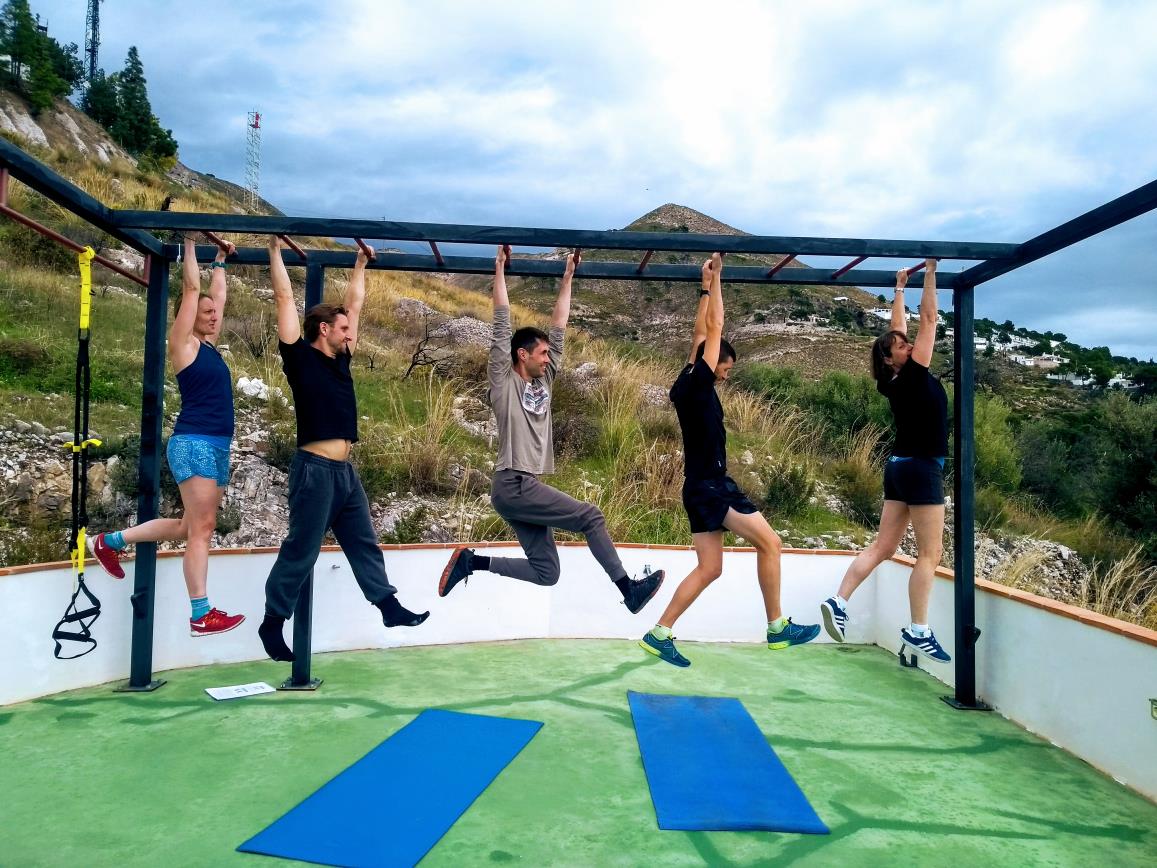
Get your FREE 23-Page Athletes Guide to Strength and Conditioning
Try new Things
Camps are a great time to try new things or do the things you know you should do but never get around to. These can include massages, foam rolling and maybe an ice bath Wim Hof style? You could try out a Yoga, Pilates or Meditation class or try some strength, conditioning, mobility and stability classes. This is a time to see if there are any techniques that can help you mentally and physically. Maybe even try an aqua fitness class?
Get your FREE 31 Structured Cycling Sessions and Training Plan
Popular Locations
In Europe the most well know destinations are Lanzarote, Mallorca, Sierra Nevada (Spain) and St Moritz. Up and coming locations include Malaga (East of Malaga is my favourite for it’s quite roads and beaches) and the Algarve or around Lisbon in Portugal.
When choosing a location factor in the time it takes to get there and the cost of flights and transfers.
Conclusion: Getting the Best From Training Camps
What ever your training camp needs, goals and budge there is a training camp for you. It’s well worth doing some homework on the various options and locations. Also make sure you plan your time on the camp to get the most from it mentally and physically.
Attending a triathlon training camp offers a unique opportunity to focus on your athletic development in an inspiring environment. To maximize the benefits, it's essential to set clear objectives, pack appropriately, and communicate with both your personal and camp coaches.
Embracing new experiences, such as yoga or strength classes, can further enhance your performance. By approaching the camp with a well-thought-out plan and an open mind, you'll return home not only as a stronger athlete but also with cherished memories and newfound motivation.
Enjoy the journey and make the most of every moment!
Karen Parnell is a Level 3 British Triathlon and IRONMAN Certified Coach, 8020 Endurance Certified Coach, WOWSA Level 3 open water swimming coach and NASM Personal Trainer and Sports Technology Writer.
Karen is currently studying for an MSc in Sports Performance Coaching at the University of Stirling.
Need a training plan? I have plans on TrainingPeaks and FinalSurge:
I also coach a very small number of athletes one to one for all triathlon and multi-sport distances, open water swimming events and running races, email me for details and availability. Karen.parnell@chilitri.com
Get your FREE Guide to Running Speed and Technique
Get your FREE Swim Workouts for Triathletes E-book
Get your FREE Open Water Swimming Sessions E-Book
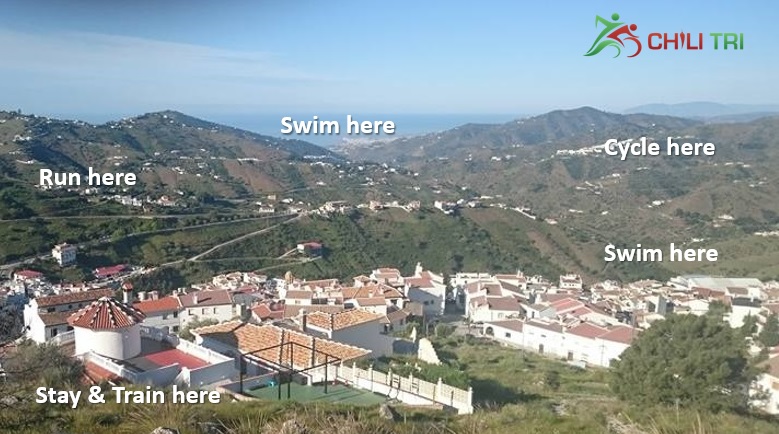
ChiliTri Base Camp in Competa, Southern Spain
.jpg)
Infographic: 10 Tips for getting the most from your triathlon training camp
Get your FREE swimming workouts for triathletes book here.
FAQ: How to get the most from a triathlon training camp
What is a triathlon training camp?
A triathlon training camp is an organized period of intensive training focused on all three disciplines of triathlon (swimming, cycling, and running). It usually takes place in a specific location conducive to training and provides an opportunity for athletes to immerse themselves in focused training, receive coaching, and gain valuable experience.
How can I get the most out of a triathlon training camp?
Here are some tips to maximize the benefits of a triathlon training camp:
- Prepare physically: Arrive at the camp with a solid base of fitness to ensure you can handle the increased training load. Gradually increase your training volume and intensity leading up to the camp.
- Set specific goals: Identify specific objectives you want to achieve during the camp, such as improving technique, increasing endurance, or working on race-specific skills. Communicate these goals with your coaches and fellow camp participants.
- Listen to your body: While training camps are intense, it's important to listen to your body and avoid overtraining or injury. Communicate any discomfort or concerns with the coaching staff.
- Embrace the experience: Be open to learning, trying new training methods, and receiving feedback from coaches and peers. Use this opportunity to expand your knowledge and skills.
- Engage with coaches and experts: Take advantage of the expertise and guidance available at the camp. Ask questions, seek advice, and participate in workshops or seminars to deepen your understanding of triathlon training principles.
- Train with purpose: Treat each training session as an opportunity to improve. Focus on technique, execute workouts with intention, and push yourself to reach new limits.
- Recover adequately: Triathlon training camps can be physically demanding. Prioritize rest and recovery between sessions to optimize adaptation and reduce the risk of injury. Get enough sleep, eat nutritious meals, and consider additional recovery modalities such as stretching, foam rolling, or massage.
- Build connections: Interact and build relationships with fellow athletes at the camp. Share experiences, training tips, and support each other throughout the camp and beyond. The camaraderie can enhance the overall experience.
- Have a positive mindset: Approach the camp with a positive attitude, embrace challenges, and celebrate progress. Stay motivated and committed to your goals, even when facing difficulties.
- Take what you've learned home: After the camp, implement the knowledge, skills, and training principles you've gained into your ongoing training program. Maintain contact with coaches or mentors from the camp for continued support and guidance.
How long should a triathlon training camp be?
The duration of a triathlon training camp can vary, but typically ranges from a few days to a couple of weeks. The length of the camp depends on factors such as available time, budget, and the specific goals you want to achieve.
Should I attend a training camp specific to my skill level?
Training camps are often designed to accommodate various skill levels, from beginner to advanced athletes. It's beneficial to choose a camp that aligns with your current abilities and goals. This ensures that the training sessions and coaching provided are appropriate for your level of experience.
What should I bring to a triathlon training camp?
When attending a triathlon training camp, consider packing the following essentials:
- Triathlon gear: Swim goggles, wetsuit (if necessary), swim cap, triathlon bike, cycling shoes, running shoes, triathlon clothing, and any other equipment specific to your needs.
- Training accessories: Heart rate monitor, GPS watch, bike computer, nutrition and hydration products, sunscreen, and a water bottle.
- Recovery tools: Foam roller, massage ball, compression garments, and any other items that aid in recovery.
- Personal items: Casual clothing, toiletries, and any necessary medications.
- Relevant documentation: Health insurance information, identification, and emergency contact details.
Can I attend a triathlon training camp if I'm a beginner?
Yes, training camps can benefit athletes of all levels, including beginners. However, it's important to choose a camp that caters to beginners and offers appropriate guidance and support. This ensures that the training sessions are manageable and tailored to your level of experience.
Remember, each training camp is unique, so it's essential to research and choose one that aligns with your goals, preferences, and budget. Consult with coaches or mentors to determine the most suitable options for your specific needs.
#triathlontrainingcamp #trainingcamptips #chilitri #triathlon #swimming #cycling #running #traithlontrainingplans #swimmingtrainingplans #runningtrainingplans
